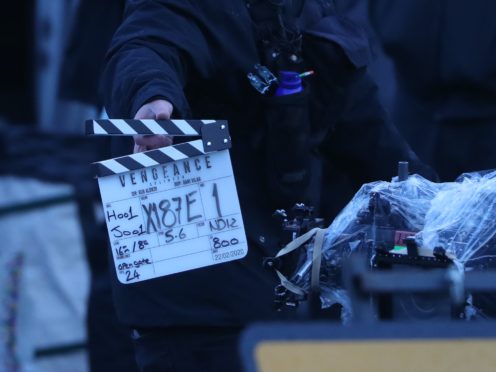Actors flying into the UK will have to abide by Government quarantine rules before they can begin filming and will have daily symptom checks under new production guidance aimed at reviving Britain’s film and TV industry and preventing the spread of Covid-19.
Stars will also be encouraged to avoid performing face-to-face if social distancing is not possible and will be asked to drive themselves to filming, rather than using chauffeur-driven cars.
We at the British Film Commission continue to support the UK production industry during the COVID-19 Pandemic – please visit our website for more information on how we can help you, as well as a collation of relevant industry resources: https://t.co/9NLB9SFDEr📽️🇬🇧📺 pic.twitter.com/R1cLK2fyhb
— British Film Comm. (@filminuk_BFC) April 16, 2020
From June 8 all residents and visitors entering the country will have to provide their journey and contact details and will be required to self-isolate for the first 14 days they are in the UK.
The British Film Commission’s production guidance for film and high-end TV drama follows a global industry consultation and has been welcomed by the Government.
It is produced as part of wider BFI Screen Sector Covid-19 Task Force recovery initiatives and is advisory rather than mandatory, with producers encouraged to apply the guidance according to each project’s specific needs.
The film and TV industry has been devastated by the global pandemic, with productions all over the world suspended, putting thousands of people out of work.
The guidance suggests all cast and crew are given Covid-19 safe working induction training, and a specific Covid-19 health and safety supervisor is allocated for all productions.
Cast and crews should have daily symptom checks and productions are encouraged to consider designating a trained person to take each crew member’s temperature daily within production quarantine or isolation zones.
Markers will be laid out on sets to accommodate social distancing and where distancing is not possible, the amount of time spent in close proximity should be limited and people will be told to avoid standing face-to-face.
Instead they will be encouraged to work side by side or back to back.
Call times should be staggered and cast members given individual trailers, while cast and crew members will be told not to share personal items such as phone chargers and pens.
Cast and stunt performers should be kept in place for as little time as possible and it is suggested they try to avoid performing in a face-to-face position.
Productions are asked to consider a testing regime for cast and stunt performers if it essential they work in close proximity to each other.
The guidance also advises productions to “avoid social crowd scenes where the UK Government’s social distancing requirements cannot be observed or use existing industry technical solutions to reduce the number of supporting artists required”, meaning extras could be replaced by CGI.
Where extras are used they could be asked to wear their own clothes and do their own hair and make up.
Culture Secretary Oliver Dowden said: “The UK is recognised around the globe as a brilliant place to make films, and is home to the world’s best film and high-end TV talent.
“We’ve worked hard to support the industry through these difficult times, and I’m delighted we’ve been able to agree this step forward towards getting the cameras rolling safely again.”
Adrian Wootton, chief executive of the British Film Commission, added: “We believe this to be the most comprehensive, extensively-consulted on Covid-19 recovery production guidance in the world.
“It reflects a phenomenal collective effort, for which we must thank the British Film Commission Recovery Group and BFC staff team, alongside the BFI, DCMS and the whole range of organisations, public and private, who contributed.
“The industry is extremely keen to restart production as soon as possible, but not without a comprehensive road map for how to do it safely while the threat of Covid-19 still looms large.
“Today’s guidance provides that reassurance, reflecting the latest Government, technical and medical advice available.
“We will also update it on a regular basis, giving clarity on the latest measures recommended to ensure a safe shoot for cast, crew and the wider public.
“This is a vital step to getting our world class film and high-end TV sector back up and running, giving the world confidence we have the most rigorous safety measures in place, and signaling that our sector is ready to return to full strength, and to making its important contribution to the UK Exchequer.”
